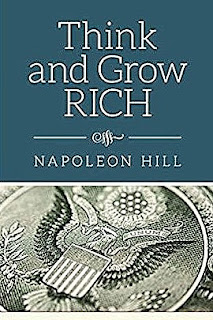Think And Grow Rich By Napoleon Hill: A Book For Investor And Entrepreneurs
This book, despite its title, is not about making more income or becoming rich. Although the author’s, i.e., Napoleon Hill’s philosophy is applicable to anyone, it can be used to help them achieve their goals and find success in their lives. It’s also a great resource for Investors and entrepreneurs.
About The Author Of Think And Grow Rich
Napoleon Hill, an American author who worked in the new thought movement, was widely recognized as one of America’s greatest writers on success. Hill’s work examined the power and role of personal beliefs in personal success. From 1933 to 1936, he was President Franklin D. Roosevelt’s advisor.
Summary Of Napoleon Hill’s Think And Grow Rick Book
One of the most popular books ever written is Think and Grow Rich (1937) by Napoleon Hill. This book examines the psychological power and brain of thought in order to help you achieve your goals for personal and professional satisfaction. This is the ultimate self-help book!
Think and Grow Rich is an attitude of mind. It harnesses the power of thoughts to bring out strong desires and a specific goal into reality. Making your all-consuming desire (definite goal) into reality is not an easy job. But, if your desire is intense and you’re willing to increase the stakes and risk losing, you’ll win.
Napoleon Hill suggests this formula as follows:
Desire + Ideas + Plan Plus Massive Action = Success
Begin with your goals. What are you truly looking for?
For example, A better job? to be successful in your current profession? To be a part of a business leader who can inspire you? To reach this goal, changing your focus from failure towards success-consciousness is essential.
To achieve this, the question of ‘how do I find employment?’ has to be transformed into ‘what should I offer to a potential employer?’ and ‘how can I earn more money for an hour?’ and “how can I give my employees more enthusiasm, energy, concentration to my work?’ For more detail and know about Napoleon Hill’s other publications, visit finnotes.org.



.jpg)
Comments
Post a Comment